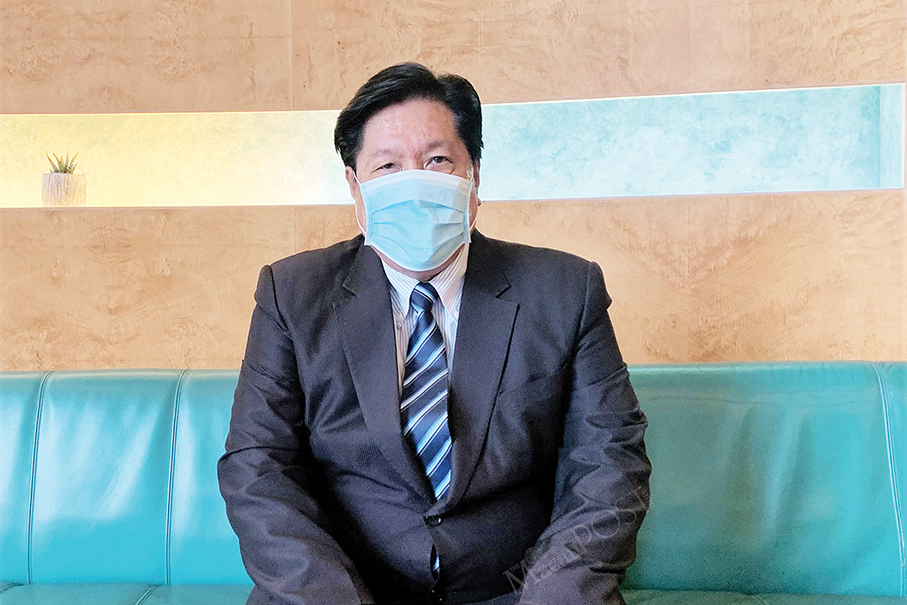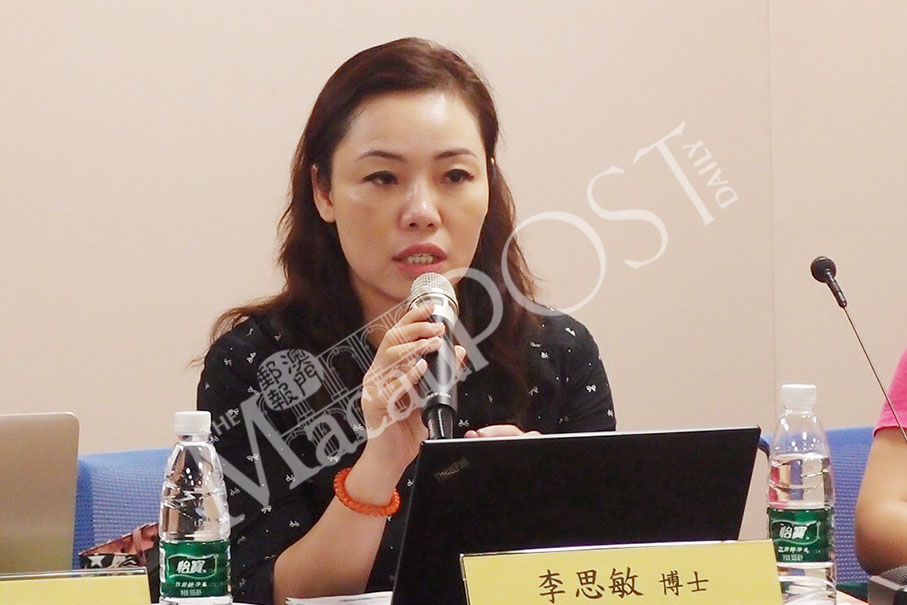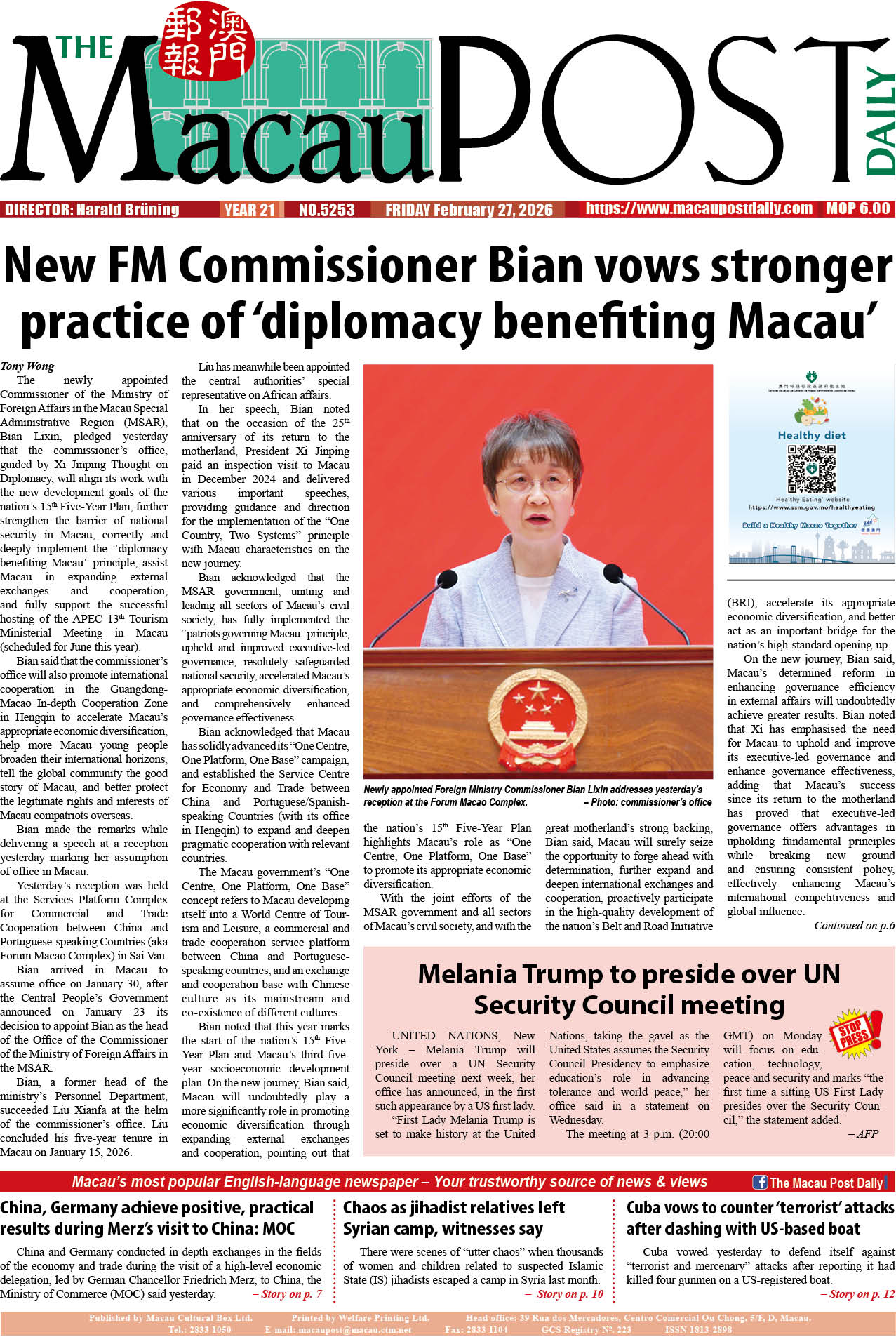Macau Economic Association President Lao Pun Lap told The Macau Post Daily in an exclusive phone interview this week that a “high vaccination rate doesn’t necessarily mean fewer COVID-19 cases but it is undeniable that [vaccinated COVID-19] patients do suffer less.”
Lao said that Singapore has a vaccination rate of about 80 percent but the number of cases has been increasing there in the last few months, and this was because the city state’s government decided to implement the “herd immunity” policy. He said that from the latest local COVID-19 cases people have learnt that even being vaccinated, when it came to the Delta variant, the virus could still spread.
However, Lao did not dismiss the importance of getting inoculated and he urged the government to give residents an incentive to get jabbed which would help the inoculation rate but, he insisted, having a high inoculation rate might only be one of the requirements of the Guangdong provincial government or central government in Beijing to ease the COVID-19 control and prevention measures vis-à-vis Macau.
Lao said that the local government should “map out” details with the central government under which conditions Macau would be under lockdown, and what would be the requirements for resuming the mainland’s electronic application process for a travel permit to visit Macau.
Lao pointed out the “abrupt” decision to not lift the mandatory quarantine rule for Macau arrivals in Zhuhai on October 4 and the unsuccessful negotiation to not extend the mandatory rule on National Day alerted the local government that there were still many specifics to be discussed in order to be completely “in sync” with the mainland’s COVID-19 prevention and control measures. He pointed out that in the past two weeks it became clear that the city’s novel coronavirus measures did not completely match the mainland’s standards in areas such as the management of quarantine hotels, the nucleic acid test (NAT) requirements and the tracking of COVID-19 patients’ close contacts.
According to Lao, in the mainland when there were cases, the authorities would only lock down the directly affected areas or the streets but rarely locked down the entire city. He stressed that the mainland should lay out all the requirements and measures Macau would need to follow so that Macau could get the same “treatment” when the city has recorded local cases. He underlined that this would benefit both mainland visitors and Macau residents, adding that on the one hand, mainland visitors would not be as “confounded” when they were “stuck in” Macau because of the sudden change of policy. While, on the other hand, Macau would not be as severely impacted by the few local COVID-19 cases as it was over the National Day Golden Week holiday.

Macau Economic Association President Lao Pun Lap poses at a coffee shop near Hoi Fu Garden during a previous interview in June. Photo: Prisca Tang
Saving SMEs means protecting jobless rate
When asked how long would it take for Macau to recover from the economic damage caused by the latest COVID-19 cases, Lao said it depended on how the government “saves” the city’s SMEs.
“It goes without saying that Macau’s main sector is related to tourism and gaming. In other words, Macau highly depends on visitors and tourists. Unlike Hong Kong, we only have around 680,000 residents and our domestic demand is not sufficient for local small- and medium-sized enterprises (SMEs) to survive,” Lao said.
Hong Kong has a population of 7.5 million.
According to Lao, around 90 percent of local businesses are SMEs, and the last round of e-consumption benefits has already been “debilitated” as many residents have already spent all their “government money”. He pointed out that this may really be the time to consider whether to launch a new round of the consumption subsidy as “saving Macau’s SMEs means protecting the city’s unemployment rate.”
Macau’s jobless rate stands at 2.9 percent, according to the latest available official statistics.
“There were cases in the summer and cases over the Golden Week [National Day holiday], the SMEs are in despair and really need a helping hand. Small businesses like gyms and beauty parlours were asked to close due to the latest cases but their rent must be paid regardless. If this continues to happen for just a month or two the SMEs would be forced to close down,” Lao pointed out.
However, Lao pointed out that the SMEs aren’t the only ones affected by the local COVID-19 pandemic development, adding that workers at casino-hotel resorts and casinos’ VIP rooms have also been negatively impacted by it. He underlined that some workers at those companies have been able to keep their jobs but lost one or two thirds of their salary. While, he added, taxi drivers have also been “victims” of the latest novel coronavirus cases.
Keeping Macau on an even keel
Similar to other economists that have spoken about COVID-19’s economic impact, Lao agrees that the government should launch subsidies that help specifically the SMEs, taxi drivers, and those who are self-employed. He said that policies such as extending the payback period, “only paying interest not the loan” and optimising the city’s vocational training programme could be implemented. He also urged local banks to simplify the loan application process for small businesses as “time is money” and waiting a long period of time for approval could lead to missing the “golden period to rescue their business”.
Lao noted that next month the government’s budget for 2022 will be announced. He acknowledged the fact that the government’s gaming revenue has fallen drastically but stressed that “this is the time to use the government’s reserves.”
“Next year’s budget will, for sure, be a deficit but the government should spend on things that it must spend on such as subsidies for SMEs. Meanwhile, the government should try to cut the budget on its daily expenses,” Lao stressed.
Lao said that there were estimates out there related to how much money Macau has lost over the National Day Golden Week, therefore it was important to calm residents’ minds by using suitable methods.
Meanwhile, when talking about attracting mainland visitors after the COVID-19 scare is over, Lao noted that “it took Macau almost 500 days of no local cases to earn mainlanders’ vote of confidence, but it only took a night to shatter their faith”.
Lao underlined that the key to economic recovery depended on “whether [Macau] can get back mainland visitors’ trust and faith”. He said that as people have seen on television, one should know that a lot of people have been affected by the sudden changes in the COVID-19 prevention and control measures. He added that Macau “has certainly made an impression on visitors but it’s not necessarily a good one”.
“It really depends on the government to decide how we could stabilise the COVID-19 situation and straighten out all the details with the mainland in terms of novel coronavirus prevention and control measures in order to prevent such mishaps from happening again,” Lao said.
Moving forward, Lao said residents were counting on the government to keep Macau on an even keel.







